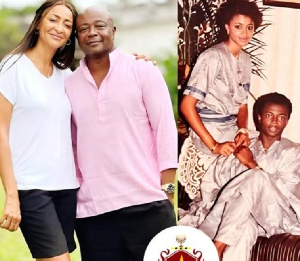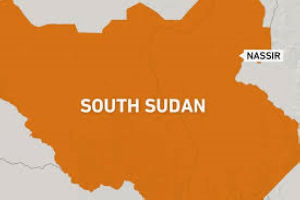Ghana has launched the Easter Chocolate Scorecard in Accra to drum home the need to promote sustainable cocoa production in the world, especially in cocoa producing countries.
The Scorecard programme, introduced in 2018 in America and Europe, is to assess the activities of cocoa and chocolate processing companies against indicators like agroforestry, deforestation and climate change, living income policies, human rights due diligence, transparency and traceability, and child labour.
The indicators are expected to help address social and environmental concerns regarding the sector.
The 2021 Easter scorecard, launched earlier this week in Washington D.C., USA, therefore, ranked and graded chocolate companies on key sustainability issues with the “Good Egg” award going to the three highest-ranking companies.
However, non-performing companies, who received the lowest marks, were awarded the “Rotten Egg” award.
At the Ghana launch in Accra, Mr Obed Owusu-Addai, the Managing Campaigner of EcoCare Ghana, a local non-governmental Organisation, said in collaboration with the Ghana Civil Society Cocoa Platform (GCCP), his outfit decided to localise the issues raised in the Easter Scorecard abroad and situate them within the context of current cocoa conversations in the country.
This was because Ghana and Cote d’Ivoire, being the world’s major cocoa producing countries, were environmentally affected by production practices including forest loss and child labour issues.
Both countries, however, do not gain any substantial benefit of the sustainability.
He said the launch of the Scorecard would help assess the activities of chocolate processing companies against indicators that were relevant to the ordinary cocoa farmer in the country.
“In the context of Ghana, we are looking at what things these companies are putting in place in their corporate document to ensure that their footprint do not lead to further deforestation. And how are they programming their activities to support local producers to ensure their supply chain does not have deforestation related cocoa beans“.
There was also the need to look at how cocoa producing farms were supported in order not get entangled with issues of child labour, Mr Owusu-Addai said.
“Especially around this Easter where a lot of people around the world eat a lot chocolate, we also wanted to show to Ghanaians what the footprints of those who buy our cocoa beans and processes it into chocolate bars in Europe and America were.”
Mr Samuel Mawutor, Senior Advisor, Mighty Earth, a global environmental campaign organisation based in USA, explained that Mighty Earth partnered Green America, INKOTA, National Wildlife Federation, and Be Slavery Free in Australia and The Netherlands to develop a survey.
The survey involved the selection of chocolate companies, creating explanatory videos for Zoom conferences for them to answer any possible questions, grading the companies, and discussing some of the pressing and vital sustainability issues facing the chocolate industry.
The companies selected ranged from the largest cocoa traders and chocolate manufacturers in the industry to smaller innovative ones.
Mr Mawutor said some major companies, which were approached to participate in the survey, turned down the invite, adding that non-participation was viewed as a lack of transparency.
“We believe that all companies selling chocolate products should be able to provide the information we are asking for, and consumers have a right to know about the conditions under, which the chocolate is produced,” he said.
“We awarded a “good egg” prize to corporate accountability and responsibility leaders, based on where those companies’ chocolate were available.”
“Some very high-performing companies only sell in certain geographies, and we wanted consumers to always have the realistic option of going out and buying chocolate from a ‘good egg’ winner.”
“We sadly gave a ‘rotten egg’ award to a company that was not only unresponsive to our questionnaire but also had a demonstrated problematic track record of poor performance on cocoa sustainability”.
Mr Mawutor said previous scorecard ranked and graded companies based on their public support for due diligence regulation but this year’s went deeper, with the scores depending on the extent to which the company implemented the different elements of human rights and due diligence.
These elements are human rights policy statements and internal due diligence processes; comprehensive risk assessment, which is publicly available, and measures to prevent and mitigate all relevant human rights risks in the cocoa supply chain, while reviewing and reporting on the impact of these measures.
“If a company does not know where their cocoa comes from, they cannot ensure it is not tainted by child labour, deforestation, or other abuses. Without transparency on the traceability, civil society cannot hold companies accountable. Transparent traceability is crucial as a bedrock for all other reforms,” he said.
Regional News of Sunday, 21 March 2021
Source: GNA













